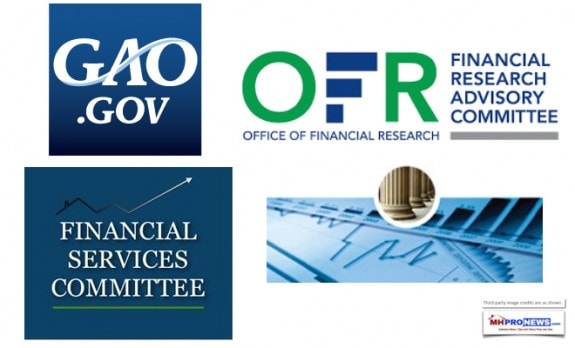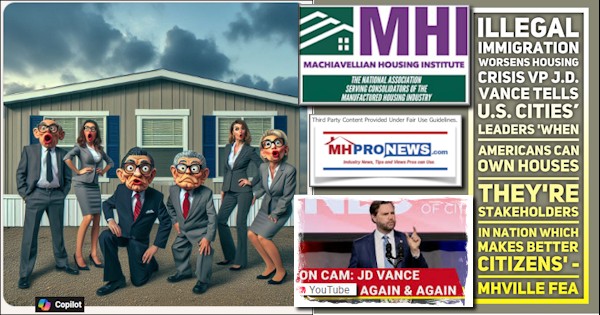
“In September 2014, the House Committee on Financial Services requested that GAO review OFR, an office within the Department of the Treasury,” said the Government Accountability Office (GAO) in a separate media release to MHProNews.
“Among other things, GAO was asked to assess the agency’s usefulness to regulators and Congress in assessing systemic risk in the financial system and any delays or set-backs in its major undertakings. GAO subsequently initiated a review of OFR in January 2015,” said the GAO.
The GAO added, that “However, during the course of its review, GAO encountered substantial delays in obtaining access to agency officials and information. Separately, whistleblower allegations and an ongoing Treasury OIG investigation led GAO to terminate the engagement.”
GAO closed by noting that: “GAO’s decision to terminate the engagement without issuing a product,” meaning, they were done chasing the OFR for details.
The GAO previously issued a largely favorable report on manufactured housing, linked below.
14 Years – Time to Revisit the Manufactured Housing Improvement Act of 2000?
“OFR Director Richard Berner appeared as the hearing’s sole witness,” said the Financial Services Committee.
“From studies that impugn the workplace culture, to low morale, multiple ongoing investigations, and today’s harsh criticism of OFR by the Government Accountability Office, it appears to both outsiders and insiders that this organization is completely dysfunctional,” said Chairman Ann Wagner (R-MO). “Following these reports of mismanagement, questionable analysis, bureaucratic redundancy, and the inability to fulfill its statutory mandate, one question comes to mind; why does the OFR exist?”
Key Takeaways
- Eliminating the OFR would improve risk management by encouraging diverse perceptions of rise and more robust risk management strategies.
- Eliminating the OFR will result in one less redundant federal bureaucracy. There are already countless other federal agencies that perform market surveillance and collect and analyze data for purposes of identifying threats to financial stability.
Both federal statements today underscore the waste, fraud, and abuse that third parties claim cost taxpayers over $600 billion dollars annually. Fixing those problematic losses, cited in the report found as a download in the report linked below, could dramatically cut the federal deficit.
“Fiscal Carnage,” “Calamitous Economic Hole” Decried by Citizens Advocacy Group
While not directly related, this expose also points to the years of problematic work by the CFPB. Many in the MH Industry have seen the CFPB as overall harmful to the industry and consumers. Financial Services Committee Chairman Jeb Hensarling recently reacted strongly to the CFPB dust-up there, for that report, see this link below.
House Financial Services Committee Chairman Jeb Hensarling Reacts to CFPB Controversy
“We Provide, You Decide.” © ## (News, analysis, commentary, related links.)
Note 1: Thousands get it. For those industry pros, investors, and MH advocates who want to sign up to the manufactured home industry’s leading headline news/updates – typically sent twice weekly – please click here to sign up in just seconds.
(Image credits are as shown above, and when provided by third parties, are shared under fair use guidelines.)


























